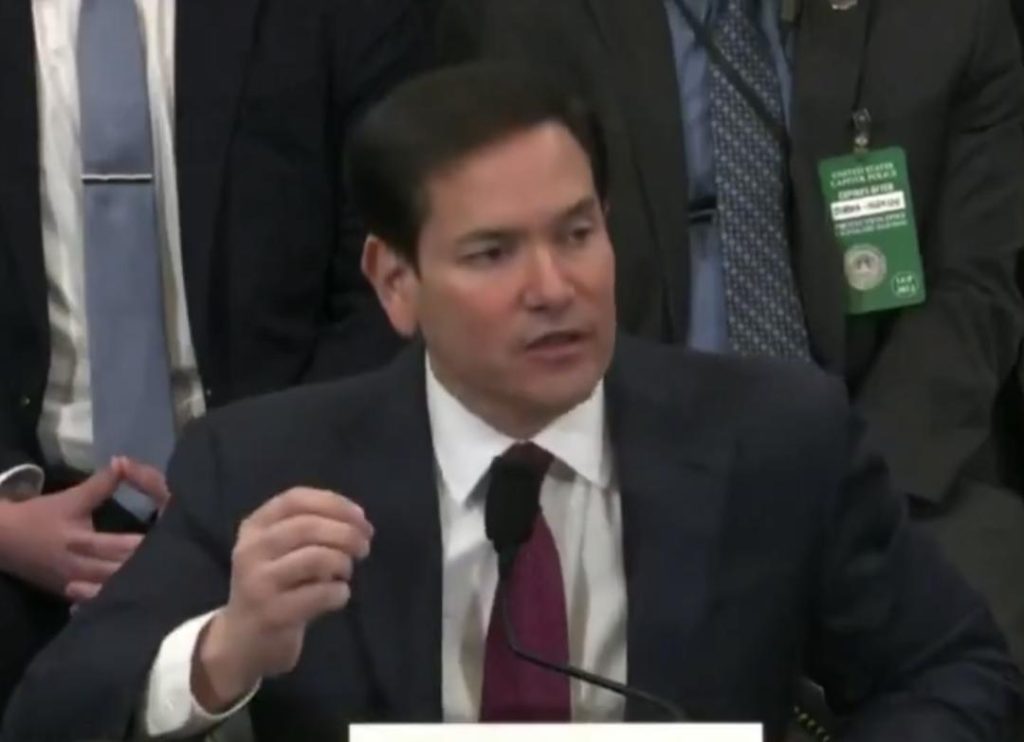
Horrifying things happening on planet, US can’t solve all: Rubio
In a candid statement, US Secretary of State Marco Rubio has acknowledged that there are numerous horrifying issues plaguing the world, which the United States cannot resolve on its own. Speaking before the Senate Committee, Rubio emphasized the need for the US to prioritize its foreign policy focus on areas that align with its national interests.
Rubio’s comments come at a time when the world is grappling with an unprecedented array of crises, from the ongoing conflict in Ukraine to the devastating effects of climate change. The Secretary of State’s remarks have sparked intense debate, with many questioning the US’s role in addressing global challenges.
According to Rubio, there are indeed some great causes in the world, but there are also some horrifying things happening on the planet. He emphasized that America cannot solve every single one of them, and that the country needs to prioritize its foreign policy focus to ensure that its efforts are effective.
Rubio’s statement is a stark departure from the traditional narrative of American exceptionalism, which posits that the US has a unique responsibility to shape international events and promote global stability. Instead, the Secretary of State is acknowledging that the US is not omnipotent and that it cannot single-handedly solve all of the world’s problems.
So, what are some of the horrifying things happening on the planet that Rubio was referring to? One of the most pressing issues is the ongoing conflict in Ukraine. The conflict has claimed thousands of lives and has displaced millions of people, with the international community struggling to find a lasting solution.
Another issue that Rubio may have been alluding to is the climate crisis. Climate change is one of the most pressing threats facing the world today, with rising sea levels, devastating natural disasters, and unpredictable weather patterns all having a profound impact on global stability. Despite the urgent need for action, the US has been slow to take significant steps to address the crisis.
The ongoing refugee crisis is another issue that Rubio may have been referring to. The crisis has seen millions of people flee their homes in search of safety and security, with many facing dire circumstances in refugee camps and other temporary settlements.
The US has a long history of involvement in global conflicts and crises, with many arguing that the country’s interventions have often had unintended consequences. From the Vietnam War to the invasion of Iraq, the US has been involved in numerous military conflicts that have had devastating effects on local populations.
Despite this, the US continues to play a major role in global affairs, with its military and diplomatic presence felt around the world. However, Rubio’s statement suggests that the US may be scaling back its ambitions and focusing on more targeted efforts to address specific challenges.
So, what does this mean for the US’s role in the world? In the short term, it may mean that the country is less likely to intervene in global conflicts and crises, and more likely to focus on bilateral agreements and partnerships with other countries. However, it could also mean that the US is more willing to work with other countries to address global challenges, rather than trying to solve problems on its own.
Rubio’s statement has sparked intense debate, with many arguing that the US should be doing more to address global challenges. However, others have argued that the country’s resources are stretched thin, and that it is unrealistic to expect the US to solve every single problem that arises around the world.
As the world grapples with an unprecedented array of crises, it is clear that the US will continue to play a major role in global affairs. However, Rubio’s statement suggests that the country may be adopting a more nuanced approach to foreign policy, one that prioritizes its national interests and focuses on addressing specific challenges rather than trying to solve every problem that arises.



